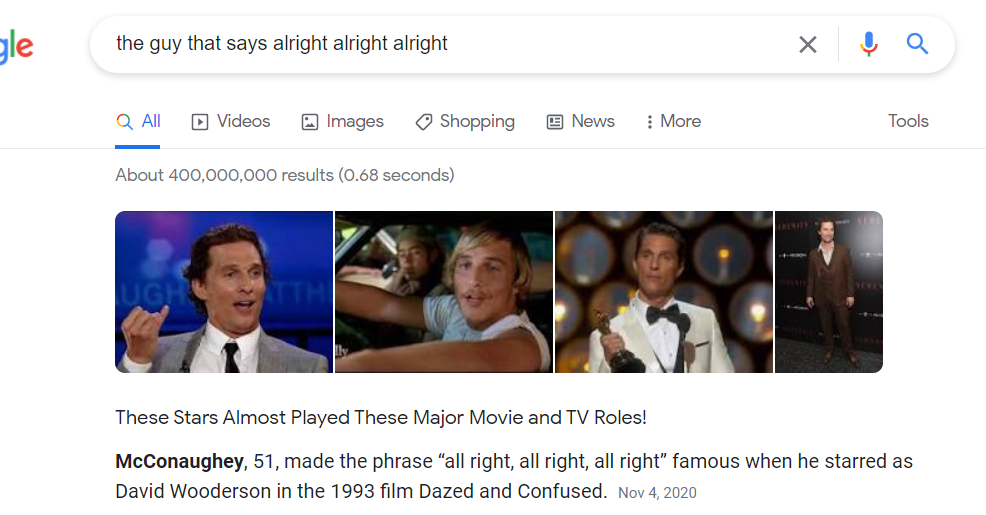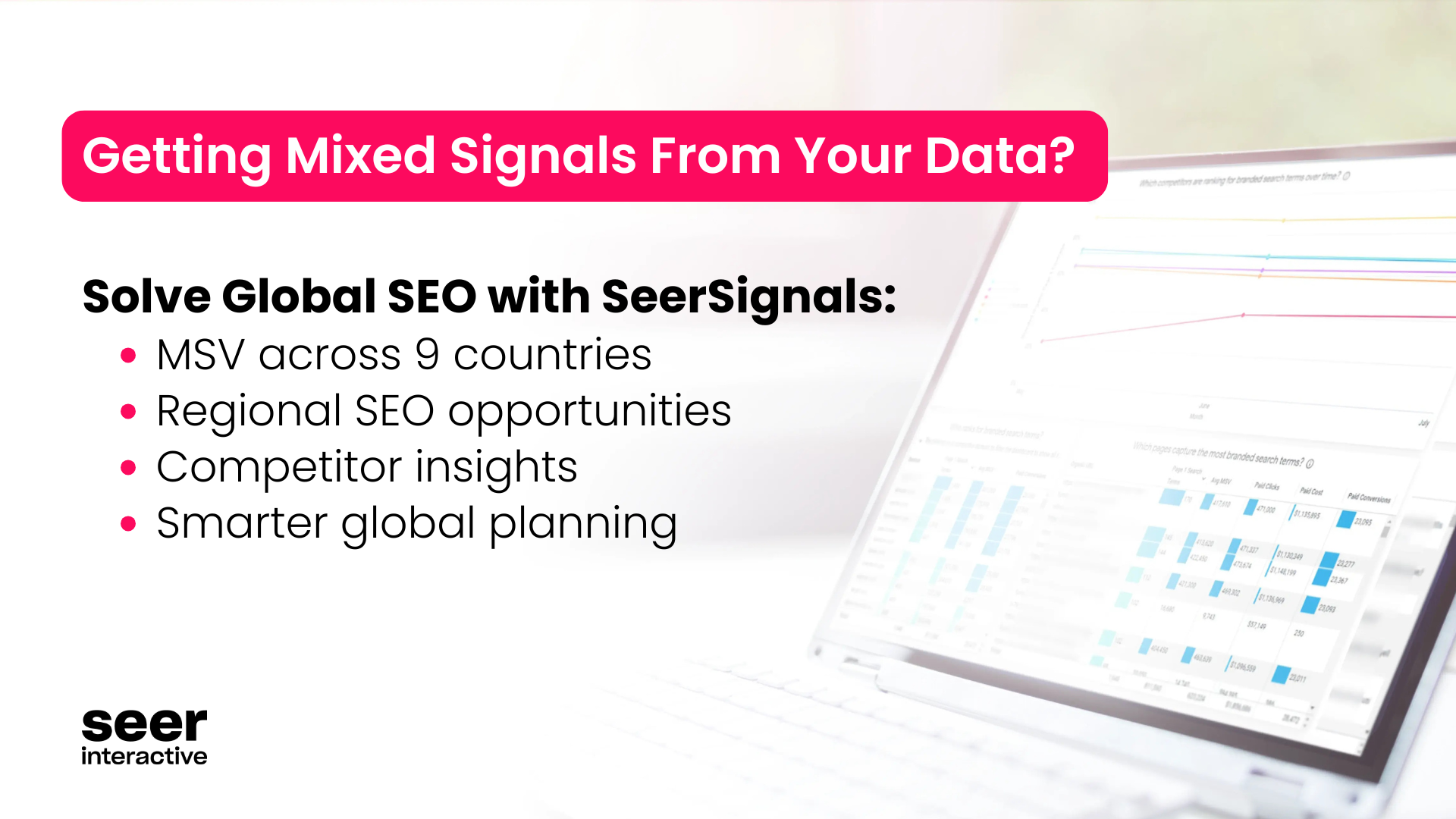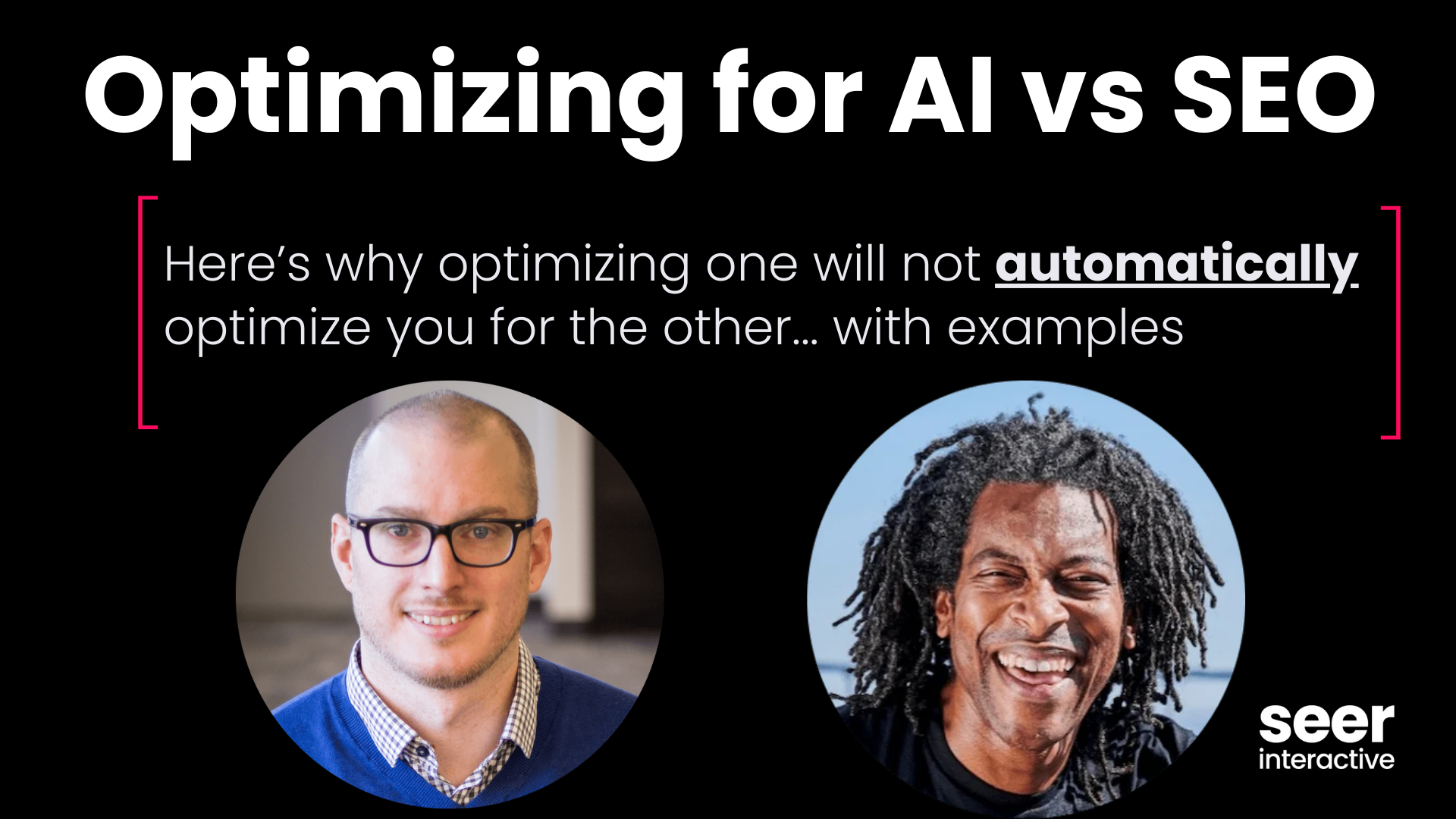It sometimes feels like, when it comes to SEO, the only constant is change.
However, if you look past “best practices” and broad-based studies to parse what Google is actually trying to accomplish with its search engine, you can begin to shape some powerful, people-focused philosophy that can help to make your site (nearly) algorithm proof and help you deliver better content for your intended audience.
So let’s practice thinking like Google.
Thinking Like a Search Engine
Search engines are like data ...
Yes, I’m talking about Star Trek’s Data. For those who may not be familiar with the character, he is an Android who is fascinated by human behavior and motivation and, throughout the entire arc of the show, he strives to better model human behavior.
That’s what search engines do. In the early days of search engines, we had to learn to use convoluted queries and many of us learned (reluctantly) what “Boolean” meant, but the search engines quickly learned that people preferred to use natural language to pose their questions.
Some of Google’s most far-reaching updates, like the “Hummingbird” update, revealed astonishing new ways that a set of algorithms were beginning to better understand how humans naturally communicate.
In the early days of Google, for example, if you’d been researching the latest Mac hardware, and then maybe got curious about the history of the company itself, you’d type in “apple” and you’d get some results about Apple as the hardware manufacturer, but you’d also get information about Granny Smiths and Red Delicious. Now, Google understands that sequential searches are almost always related.
Not only are search engines getting much better at understanding context and the semantic subtleties of human communication, they’re also learning a lot about our cultural associations, as well:

So it’s a big deal Google knows the difference between a fruit and a computer?
It may seem like distinguishing between a Mac computer and a McIntosh Red apple should be obvious. And if that makes you feel smarter than Google, that’s good!
Search engines are great at a lot of things, but they still have room to improve when it comes to understanding many things that you and I find incredibly easy. Like understanding human communication. So this gives you an advantage!
Putting those brains to work
Ok, so how is this supposed to help us master SEO and get our site to rank for all the best keywords?
Lots of SEO practitioners like to talk about changes to Google’s famous algorithm, but trying to keep on top of those is almost impossible; Moz maintains a list of likely- and confirmed updates, but it’s currently in the hundreds. And there are many times that Google has pushed site owners to implement a particular snippet of code, and SEOs scramble to get it on their sites, only for Google to retire that same code a few years later. (*cough* authorship markup *cough*) It can leave SEOs and site owners feeling a little lost.
The search engine secret sauce
By and large, the sites and businesses that are able to weather the vagaries of search engine algorithms are those who are focused on building a better product, by listening to their audience and building based on what they find there.
But how does that relate to SEO? Simple ...
When Google rolls out a new algorithm update, spend some time thinking about why they’re rolling it out.
Google uses a little acronym, E-A-T, to inform how they think about quality sites that should rank highly. Those are sites that display a high level of Expertise, Authoritativeness, and Trustworthiness. (Is it just me or is “authoritativeness” a little clunky? Wouldn’t “authority” have done the job?)
So when they started pushing SEOs to use, for example, a very specific type of code on sequential pages, like blogs or product listing pages, people like me spent several years working with businesses to implement that pagination code. Then, when Google confirmed that they no longer relied on that code, lots of people felt hoodwinked.
I didn’t.
That code, it turns out, is actually a very helpful tool for screen readers, a type of assistive technology for people with visual impairments. So had I been sufficiently knowledgeable about web accessibility, I would have been implementing pagination code before Google even mentioned it.
Rubber, meet road
Now, I’d be remiss if I left the impression that technical SEO isn’t important. It is. It really is. Having someone on your team (whether an in-house person or a consultant) who knows how Google crawls and indexes sites is mission critical, take it from me.
But making big changes to your site can be costly, so you need to know when it’s time to take action, when it’s safe to hold steady, and what types of action to take when it’s needed. So ask some questions before making any big changes to try and improve your SEO:
- How will this change make it easier for our audience to find us/what they’re looking for?
- If Google retracted this initiative in 6 months, where would that leave us?
Additionally, because Google focuses on the 3 Expertise, Authoritativeness, and Trustworthiness, you’ll also want to think about:
-
Expertise
If this update seems to be focused on boosting sites that are subject matter experts, what additional efforts can we make to boost our standing as experts in our field? Perhaps pulling together some original research (first making sure that you’re answering questions lots of people are actually asking) and then using the skyscraper technique to turn that content into a great tentpole piece for your site.
-
Authoritativeness
I’ll go back to the example of the authorship markup. If Google suddenly seems to be favoring sites whose authors are widely quoted, then it’s time to get your own authors some exposure. HARO? Don’t mind if I do!
-
Trustworthiness
If this update is focused on sites that are very trustworthy, then how can you become more trustworthy? It’s not an easy question, but if you implement some code to your site while also boosting your credibility, then even if Google walks back their algo update, you’re still ahead of most of the crowd.
How you answer these questions will depend on your audience, your competitors, and many other factors. But if you look for the rationale behind Google’s updates, you’ll ultimately be leveling up how you serve your audience.



